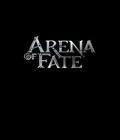Admittedly, when I first saw that Crytek was working on another entry in the MOBA genre, it was a little hard to take it seriously. The MOBA genre has exploded in popularity alongside League of Legends, and there's an increasing number of games trying to get a own foothold in that territory. Arena of Fate has a lot of similarities between it and other MOBAs, but it differentiates itself in its overall approach. It's a MOBA without needless baggage, and it's shaping up to be one of the most outwardly fun approaches to the genre.
Overall, Arena of Fate shouldn't seem that alien to genre fans. A typical setup involves five players on each team, fighting their way down two lanes toward the enemy base. The lanes have a series of towers that must be destroyed, and waves of AI-controlled minions mindlessly make their way down the lanes toward the enemy base. The players control hero units based on a variety of historical or folklore sources, such as Little Red Riding Hood or a Japanese swordsman inspired by Miyamoto Musashi. As they kill off the minions or other players, they gain experience, which allows them to level up.
Unlike other MOBAs, the idea behind leveling up in Arena of Fate is significantly streamlined. You start the game with all four of your abilities unlocked: three normal abilities and your hero's ultimate ability. As you level up, you unlock item slots, which let you choose new ways to expand your hero. Click on the slot, click on the item, and after staying stationary and unharmed for a few seconds, you equip the item. There's no need to go back to the base or have needless downtime. These items are self-explanatory as well, so they're not named the Chalice of Demon Blood or some nonsense. They're items that give easily discernible benefits like a boost to max health or add lifesteal to attacks.
Some people will deride the game for being too streamlined, but such derision is missing the point. The game is clearly meant to be easy to engage with, so matches can be entered quickly and characters can be learned without consulting voluminous build guides. You pick a character and jump into the fray, with little more knowledge needed than of knowing your character's archetype. The game launches with 30 heroes to choose from, so I imagine that there will be a good enough palette for most players.
I got the chance to play a session and picked a sumo wrestler hero with a set of interesting attacks. This particular hero was a tank archetype but also had some diverse moves. His ultimate lets him throw down a ring around his position to stun enemies. This paired nicely with his Q ability, which is a powerful knockback, and it also let me set up some nice teamwork opportunities to box in enemy players.
There are three ways that a team can win a match: Outscore, Overwhelm or Outlast. A team can win via Outscore, which is awarded to the first team to reach 10 points. A tower kill is worth a point, as is killing one of the Titan NPCs found on the maps. Finally, seven player kills is worth one point, so even a stalemate from the standpoint of tower kills can result in victory if one team is able to get some kills. An Overwhelm victory means that one team kills the other team's base, which can only be taken out after at least one lane has lost all of its towers.
Most importantly, Outlast is a victory condition. Each match can last a maximum of 20 minutes, at which point the team with the most points wins. Longer matches have their place in other MOBAs, but there is nothing more soul-crushing than being stuck in a match for 1.5 hours with a team that refuses to surrender. Arena of Fate skirts that problem with its time limit and makes every second of the gameplay feel that much more meaningful. You can still win in a variety of ways, but the match is resolved relatively quickly and without the protracted stalemates found in other games of the genre. It's a game that can be played by people who have other stuff to do that evening, and that certainly speaks to me.
I went into Arena of Fate figuring it would be yet another MOBA, and I wondered why the genre needed another entry. I left it with such elevated impressions that I named it as one of WorthPlaying's Best of Show nominees. It's a MOBA for people who don't want to use an Excel spreadsheet to analyze item builds and peer over stat sheets. Instead, it's a game for those who want an accessible game that still yields a significant amount of player choice but not at the expense of their time. My time with the game was fun, and I can't wait to play some more.
More articles about Arena of Fate










 Arena of Fate is an action-packed online multiplayer game where you get to lock horns with legendary heroes from history and fantasy alike.
Arena of Fate is an action-packed online multiplayer game where you get to lock horns with legendary heroes from history and fantasy alike.


